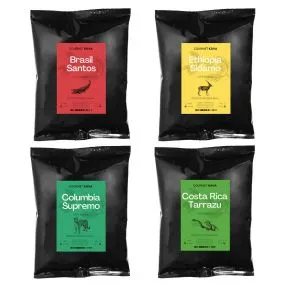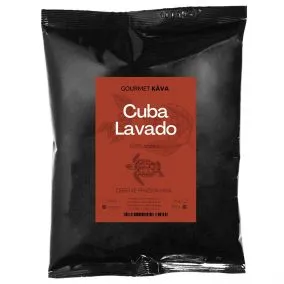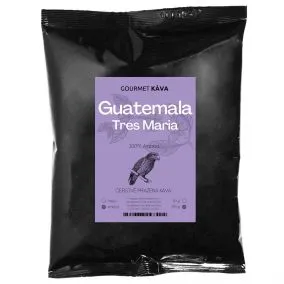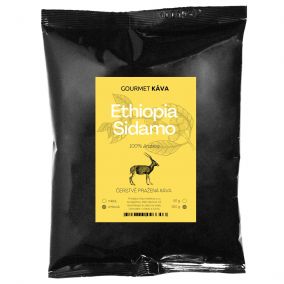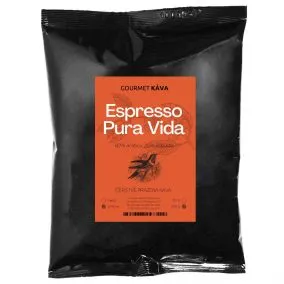Does it make sense to combine two superfoods? And do coffee and medicinal mushrooms even go together?
As the title suggests, medicinal mushrooms will be in play. So no one is asking you to soak a mushroom in espresso. Just like coffee, dried reishi mushrooms are finely ground and you usually can hardly taste them in the drink. Probably the most famous combination is coffee with the reishi mushroom (Ganoderma lucidum).
Meet the reishi
We've written a lot about coffee here, but before we befriend it with a medicinal mushroom, you should learn a bit about this unusual ingredient, too.
- boosts immunity;
- has so-called adaptogenic effects, i.e. strengthens the body's ability to resist stress;
- it works as a powerful antioxidant with anti-inflammatory effects, there is even talk of a so-called anti-aging effect;
- delays the onset of fatigue;
- has a beneficial effect on the cardiovascular system and blood sugar levels;
- dampens anxiety states and improves the condition of patients suffering from depression.
How to combine reishi with coffee
First of all, you need the dried reishi mushroom ground into a fine powder. This is then mixed with ground coffee. You can buy the resulting reishi coffee either in instant form, ground or as special coffee pods.
What does reishi coffee offer?
Because of the blend of coffee and dried mushrooms, it's probably pretty clear that it has lower caffeine content. This can be a welcome feature for consumers who struggle with caffeine sensitivity. In addition, reishi will provide a number of valuable nutrients with very interesting effects, which we have already mentioned above.
Are there any side effects to worry about?
Generally this type of coffee is very well tolerated. But more sensitive individuals may react to the reishi admixture - most commonly with upset stomach, dry mouth or a rash.
Reishi in high doses can cause a decrease in blood clotting and an associated risk of bleeding. Therefore, it is advisable to discontinue supplements and coffee containing this mushroom (if consumed in large quantities) at least two weeks before the planned surgery.
It is also not advisable to take it together with blood thinners. Adverse interactions have also been observed in combination with some diabetes medications. Reishi actually lowers blood sugar levels, so when combined with antidiabetic drugs it can lead to an overly dramatic drop. As for a safe daily dose, it is usually stated as 1400-5000 mg per day taken in several doses.
If you plan to consume reishi in coffee, always pay attention to the label information. You should find out what the percentage of reishi is (usually 2%), and in some cases the manufacturer adds information about the amount of polysaccharides in the reishi.
Somewhere you can also find the reishi extract content in a given packet of coffee, including the recommended dosage. Compared to nutritional supplements, the dose of reishi in coffee is usually significantly lower. This is then associated with a decrease in potential risks, but at the same time the desired effects.
If you are interested in getting to know reishi a little better, then coffee is certainly an interesting guide on this journey.
Resources:
https://pubmed.ncbi.nlm.nih.gov/31777013/
https://pubmed.ncbi.nlm.nih.gov/25686270/
https://pubmed.ncbi.nlm.nih.gov/14756912/
Lavado coffee from the mountains of south-eastern Cuba will surprise you almost zero acidity and a distinctive taste of dark chocolate and caramel.
Lavado coffee from the mountains of south-eastern Cuba will surprise you almost zero acidity and a distinctive taste of dark chocolate and caramel.
Guatemalan Trés Maria coffee stands out for its perfect balance and pleasant sweetness complemented by the taste of ripe tropical fruits.
Guatemalan Trés Maria coffee stands out for its perfect balance and pleasant sweetness complemented by the taste of ripe tropical fruits.
Exceptionally low acidity and chocolate flavour come together in Brazil Fazenda Rainforest coffee, which you can buy to support the idea of an ecological and socially friendly way of growing coffee.
Exceptionally low acidity and chocolate flavour come together in Brazil Fazenda Rainforest coffee, which you can buy to support the idea of an ecological and socially friendly way of growing coffee.
Ethiopia gave its name to coffee after the Ethiopian province of Kaffa, so it's no surprise that some of the best coffee in the world is grown there.
Ethiopia gave its name to coffee after the Ethiopian province of Kaffa, so it's no surprise that some of the best coffee in the world is grown there.
A unique blend of 5 varieties of Arabicas from Central and South America , complemented by a quality robusta for an espresso full of flavour, strength and quality creams.
A unique blend of 5 varieties of Arabicas from Central and South America , complemented by a quality robusta for an espresso full of flavour, strength and quality creams.
Cuba Lavado, arabica coffee beans
Guatemala Trés Maria, arabica coffee beans
Brazil Fazenda Rainforest, Arabica coffee beans
Ethiopia Sidamo, Arabica coffee beans
Espresso blend Pura Vida, coffee beans



























































































